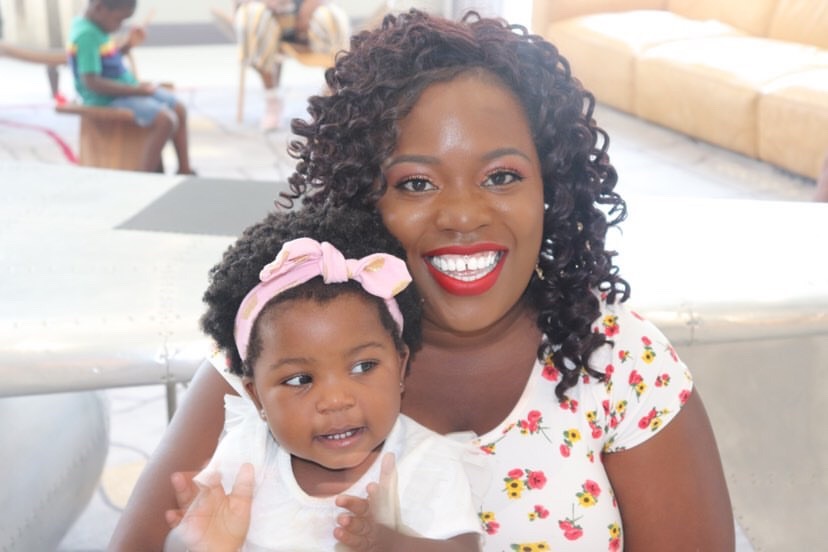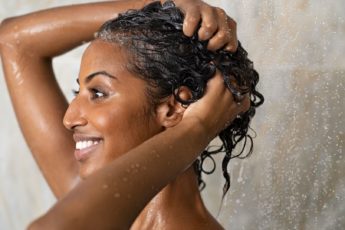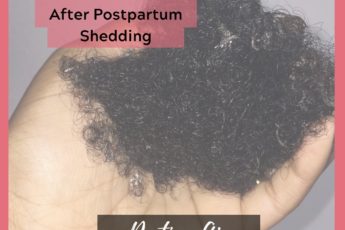Who do you think objectifies women more, the government or society?
I believe it’s a catch 22. On one hand, we have a lower socio-economic status combined with the government’s need to control the female body when it comes to our reproductive rights.
While on the other hand, we have society constantly dictating to us how we should look and act or better yet how to be the perfect woman.
On top of those things, black women in America face additional pressures from our community and our family in regards to our hair. From the Tignon Law of Louisiana in the 1700’s to having our hairstyles culturally appropriated, our hair seems to be the most ridiculed, hated, discriminated against, yet admired part of our being.
My Caribbean Roots
Coming from a Caribbean background I learned early on that I did not have “prettyhair” (because I have 4c hair) and was introduced to the “creamy crack” aka relaxers at the age of 7. I never really knew what my natural hair looked liked growing up and although it might’ve been easier to deal with my hair in a relaxed state, I did not understand how to take care of it. Since as long as I could remember, I tried everything in my power to alter it and essentially “beat it into submission”.
For most women who choose to wear their natural hair, it’s far more than just a phase or a trend, it represents something deeper… it’s an entire movement. Which is reflected in the ever declining cost of relaxers and why some brands that were once known for selling relaxers, have now crossed over into selling “natural hair care”.
We have literally been brainwashed from early on into believing that if your hair texture is anything after 3c you’re less desirable, won’t be taken seriously and won’t be able to get a good job.
We have been made to feel self-conscious about our hair and always feel like we have to cover it up with wigs and weaves. Now no one loves a good wig (weaves too) more than yours truly, but it becomes a problem when you feel like you literally cannot leave the house without a wig on or sew-in.
Going Natural
I vividly remember the first time I wore my natural hair out to work and felt so uncomfortable and exposed. I felt so small and hoped I wouldn’t bring attention to myself, which of course, was impossible. It took months of just wearing it out regardless of how I felt, in order to become fully comfortable in my own skin.
Therein lies the problem!! The fact that we have the CROWN Act shows the stigma that is surrounded with natural hair that we literally have to have a law passed to be able to wear our natural hair in styles that is represented in our culture.
We must rewrite the narrative that some hair textures are better than others. We must do better for the next generation and teach them to love themselves as they are, naturally, but that starts first with us. We must be educated on our own hair so we can pass on good hair practices to our children.

My baby
Now having a 1 year old daughter, I constantly get criticized by my family for leaving her beautiful, thick, coily hair in an Afro or not having her edges laid, if I braid it up.

She’s a child for heaven’s sakes!! No child will have their hair looking perfect 100% of the time. I am planning to break the negative narrative by teaching my daughter that she is beautiful, she has a lot to offer and that her hair does not define her.
For every time we have been told “you have bad hair” (which I have had said about me by a Spanish hairdresser who thought I didn’t understand what she said), for every little girl who gets kicked out school for wearing their natural hair or hairstyles that they identify with. For every time a woman gets told that she will not get a man or good job.
It becomes imperative that we need more representation for little black girls with their natural hair presented in society and in our communities in a positive light. My hope for my daughter is that she grows up seeing herself represented well everywhere so she won’t grow up with the same mindset as generations before her. My heart broke for the beautiful little girl in the H&M campaign. I’m sure her mother only wants the same thing for her as well!

Share with me your struggles regarding your hair journey. How do you plan on breaking the negative narrative? Let me know below!
Until next time
Contributing Mommi Ramona








Leave a Reply